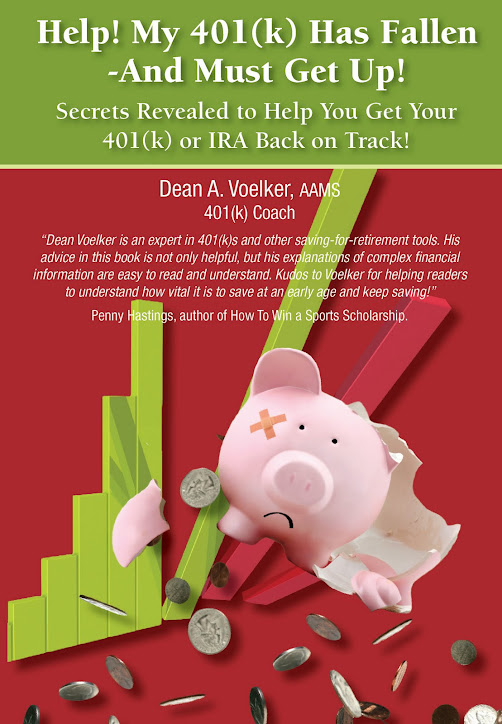Recently, I have been reading “The Retirement Savings Time Bomb…and How To Diffuse It” by Ed Slott. Ed is a highly renowned CPA and tax advisor. He has written for the Wall Street Journal, the New York Times, and USA Today. His book focuses on strategies to keep money in your savings, and away from the IRS.
One strategy of his, which I also recommend to my high net worth clients is the use of Life Insurance for estate planning. Because Life Insurance proceeds are not taxable, it’s a great way to pass money to your beneficiaries without creating a tax burden for them.
Ed uses a great story to make his point on why insurance is important. With his permission, I have included an excerpt from his book. Ed Slott’s website is
www.irahelp.com.
******************************************************************************
If you’re not a baseball fan, then the name Bill Buckner probably doesn’t ring a bell. But if you follow the game, you’ll recognize it as one of the most ignominious names in the history of baseball.
Bill Buckner was the first baseman for the Boston Red Sox in the 1986 World Series when the Sox were matched against the New York Mets. It was Game 6. The Red Sox were an out away from winning a World Series for the first time in 68 years. The ball was pitched, the Mets batter swung and connected with a thunderous c-r-a-c-c-k-k, sending the ball straight to first base and the outstretched arms of Bill Buckner, who flubbed the catch before the stunned but elated crowd in New York’s Shea Stadium, letting the ball roll between his legs!
Thanks to this colossal error, the Mets were able to pull their fanny from the fire, win the game that night, and go on to win Game 7 and the World Series title. The city of Boston has never forgiven Bill Buckner. Last I heard, he’d moved to Idaho, which apparently still wasn’t far enough for Boston fans. To Boston Red Sox fans in particular, and to baseball fans in general, Bill Buckner remains but one thing: The Man Who Dropped the Ball.
Now, what if I told you the Bill Buckner was also one of the best players ever to play the game of baseball? Would you be shocked? Disbelieving? I know I was when I heard that exact statement mad in a recent show about Buckner called “Beyond the Glory” on the Fox Sports Network. Being an accountant by trade, I decided to do my own audit of Buckner’s statistics to see if the show was right.
But how would I find those statistics? Easy. I went to a local baseball card store and asked the owner if he had any Bill Buckner cards for sale. He looked at me like I’d sprouted two heads.
“Why would you want a Bill Buckner card?” he asked. “Nobody wants them. That’s why I don’t carry any. We’d never sell them.” But I persisted, and he said he’d check around the baseball card grapevine to see if he could come up with one.
I went back in a few weeks and, lo and behold, he’d managed to dig up a few old Bill Buckner cards for me. “How much?” I asked.
He said, “They’re worthless. You can have ’em for free.”
I thanked him, took the cards home, and quickly checked Bill Buckner’s statistics. Fox was right. The numbers were astounding!
Bill Buckner played 22 seasons. Only 25 players in the history of baseball have pleyed more games then he did. He’d gotten more hits than 70% of the players currently in the Baseball Hall of Fame, including such superstar names as Mickey Mantle, Ernie Banks, Reggie Jackson, Johnny Bench, and even Ted Williams. He had 500 more hit’s the Joe Di Maggio!
When Buckner played for the Chicago Cubs, he won a National League batting title. He was also an exceptional fielder. He genuinely was one of the greatest players the game of baseball has ever had. And yet he will be forever locked in the Baseball Hall of Shame for that one slip-up at the end of his career that cost the Red Sox the World Series.
As I pondered the ill-fated career of Bill Buckner, I found myself thinking, “He’s a lot like an IRA. He had such a brilliant career, accumulated so much, but in the end lost it all due to one error, and now his name is mud.”
Is that how you want your family to remember you? As the guy (or gal) who dropped the ball?
Most people don’t think about it much, but the combination of estate and income taxes can easily consume an IRA of any size. Combined, estate taxes, along with federal and state income taxes could easily exceed 90%.…..
When it comes to retirement accounts, its not enough to earn great investment returns. Yes, that is important in building the account, but even if you earn 30% per year, every year for 30 years, what good is it if, at the end of the line, up to 90% of the account’s value is lost - which can happen if the funds aren’t there to pay the combined estate and income taxes on an inherited IRA, and so the IRA itself must be used to pay those taxes.
If an IRA must be tapped to pay tax when the IRA owner dies, the result is a cycle of taxation that doesn’t stop until the beneficiaries are so punch drunk that they don’t know what’s happened to them, let alone to their IRA…..
Do something now while you are still alive and options to protect that money for your heirs still exist. Life Insurance is your retirement account’s best defense to offset the tax burden which beneficiaries may face.
******************************************************************************
For more information, please contact me at
http://helpmy401k.us. You may also follow me on Twitter at
www.twitter.com/deanvoelker





